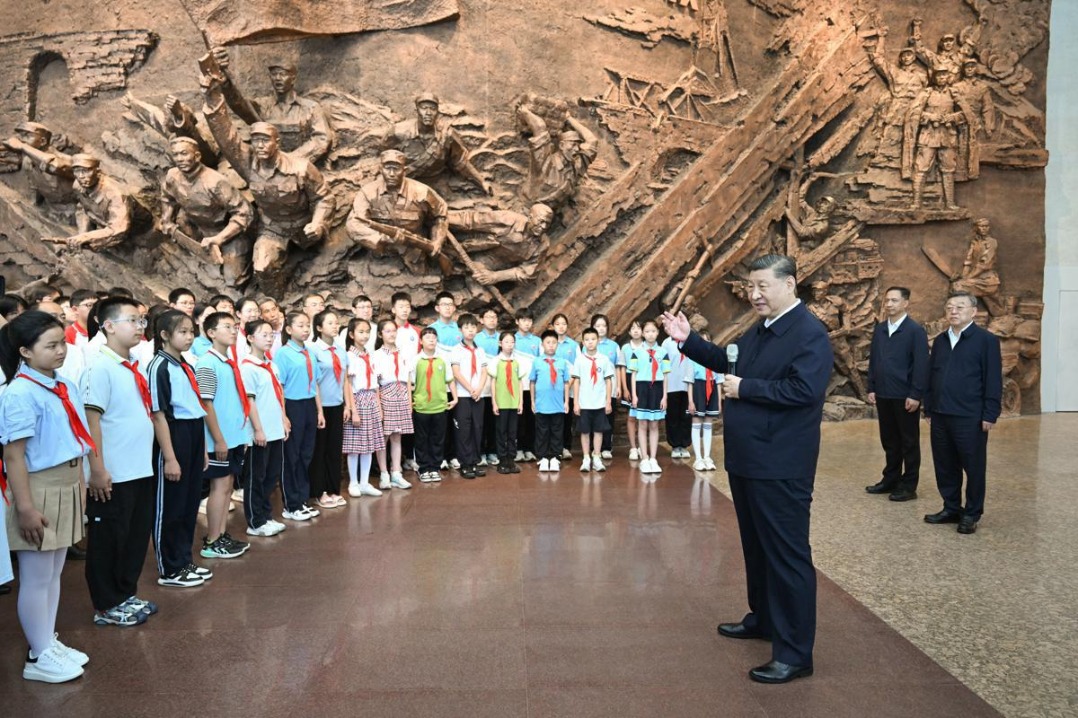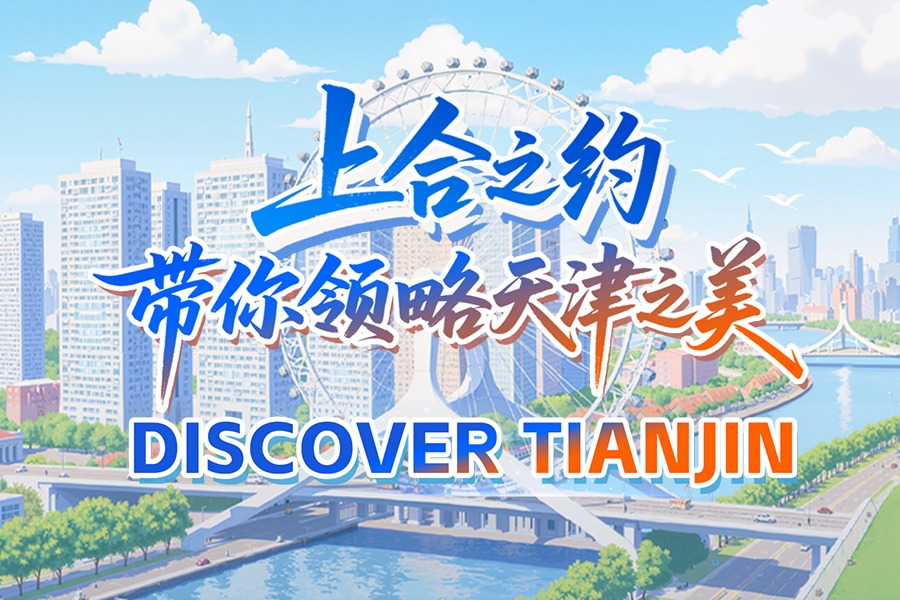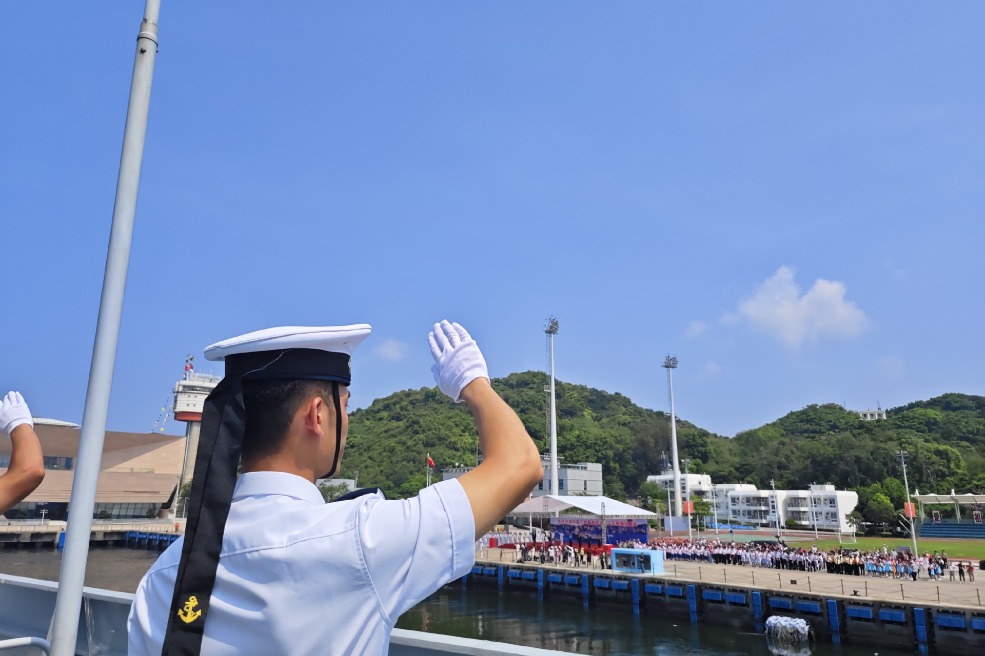All about the basso
From performing with Pavarotti, to establishing his own arts festival, accomplished opera singer Tian Haojiang recounts stories from his stellar career in new autobiography, Chen Nan reports.

About three years ago, when Tian Haojiang, a Beijing-born, New York-based basso opera singer, found himself facing a whole season without any performances due to the COVID-19 pandemic, like many other performing arts professionals, he decided to do something that he had been planning for years: to write an autobiography that reviews his music career and life over the past four decades.
"I am not a writer and I just followed my intuition to review my life as an opera singer. Word by word, I spent three years writing my stories, about 200,000 words, way beyond my expectations," says Tian, 68, who has earned recognition with 1,400 performances in 50 operatic roles worldwide.
"I once wrote continuously for 15 hours, about 20,000 to 30,000 words, in one day. Then I deleted them all. The writing process was full of revision, and I discovered with great pleasure that, from the moment I started writing, my memory expanded. It grew and grew, becoming more detailed," Tian adds. "It's much like the process of preparing myself for a new opera production. I will think about the lines, the movements and even my expression before I actually play a character. I also thought very carefully about the words I chose to write in the book. It might be a result of my being a Virgo."
The book, titled Turandot at the Arena, was published by SDX Joint Publishing Co on June 25.
Genuine and full of warmth and humor, Tian looks back on his music career from becoming an opera singer, making his mark on the global opera scene to working with top artists. He also recounts stories about traveling the world, as well as sharing his ups and downs.
Tian is the first Chinese opera singer at the Metropolitan Opera, and over 20 years, he performed 26 operas there. He also has performed leading roles in about 20 modern Chinese operas.
Before Tian became a singer, from 1970-76, he worked at a factory in Beijing. His father was a conductor and his mother was a composer, which led Tian to music. Hoping to one day study music, Tian would play the accordion and guitar in the factory. In 1976, he fulfilled his dream when he was enrolled in the prestigious Central Conservatory of Music in Beijing, where he received professional vocal training.
He opens his new book with a story about Luciano Pavarotti, the renowned Italian tenor and one of the best-known opera stars among Chinese audiences.
He recalls that it was 1981, when he was the member of a Beijing-based choir affiliated to the Central Conservatory of Music, that he first read about Pavarotti.
"When I saw his photo, I was told who he was. I knew nothing about him, but I was deeply impressed by his big smile in the picture," says Tian.
Later, in 1983, Tian went on to study music in the United States at the University of Denver with a full scholarship. He had just $35 in his pocket, and he only knew about four or five English words.
In his first week in the US, he visited New York, where he saw the same photo of Pavarotti outside the Metropolitan Opera. On Dec 17, 1983, he spent $8 on a standing pass for the opera, Ernani, by Giuseppe Verdi, which was the first opera he ever watched. The star tenor was Pavarotti.
After exactly 10 years, on Dec 17,1993, Tian appeared on that very stage alongside Pavarotti. The opera was I Lombardi, in which Pavarotti played the leading role and Tian was one of the supporting characters.
"After the first scene, I told him the story of that first visit to the Metropolitan Opera 10 years earlier, and of my first experience in the opera house," Tian says.
When the show ended and the cast went out for their curtain call, Pavarotti grabbed Tian's hand, inviting Tian to step out with him.
"He held my right hand with his left hand, and he used his right hand to draw attention from the audience to applaud me. And he repeated that in the rest of the performances. After that, he always called me 'China boy' and I would reply with a gesture of putting my palms together," says Tian.
In his book, he also tells stories of his experience with conductor Seiji Ozawa, who was born in Shenyang, Northeast China's Liaoning province, in 1935, and returned to Japan with his family in 1944. The conductor served as the musical director of the Boston Symphony Orchestra from 1973 to 2002.
He told Tian about him visiting China with the Boston Symphony Orchestra in 1979, which was the first time that he returned to China since gaining an international reputation as a conductor.
Usually, the conductor did not use a music stand, but during the concert in Beijing's Capital Stadium, he put up a music stand in front of him, with his father's photo on it, fulfilling a long-held wish of his late father to see his son give a performance in China.
"It was one of the most beautiful days in my life. My family and friends were there. It felt like my father was there with me throughout the whole concert," the conductor told Tian when they did a rehearsal of La Boheme, an opera by Giacomo Puccini, in Tokyo in 2010. They toured with the show to five cities in Japan.
"The book is very interesting and easy to read. For music students in particular, it offers many valuable experiences about a young singer growing and evolving," says renowned composer and professor at the Central Conservatory of Music, Guo Wenjing. In 2007, the two worked together on Guo's opera, Poet Li Bai, in which Tian played the titular role.
As well as singing, Tian has been dedicated to the iSing! International Young Artists Festival, a global opera training program he launched in 2011.Based in the city of Suzhou, Jiangsu province, the program brings together top singers, coaches and conductors from around the world to train young artists to perform opera in Mandarin.
"The festival, like many international events, has been affected by the COVID-19 pandemic. However, we still try to keep it running," says Tian. In November 2020, 11 singers from seven countries performed in Mandarin accompanied by the Suzhou Symphony Orchestra, under the baton of Maestro Lin Daye. The songs were based on renowned Tang Dynasty (618-907) poems, which were created as part of a competition that commissioned worldwide composers to create works based on Tang Dynasty poetry.
Tian is currently working with his team to launch another competition, this time to create works based on poems from the Song Dynasty (960-1279).




Today's Top News
- Elderly people should consider new careers
- Concept of ecological civilization 'inspiring'
- Lychees tell the story of Chinese modernization
- Trump announces 25-40% tariffs on 14 countries
- Smart SCO cities to intelligent urbanization
- War against aggression commemorated






























